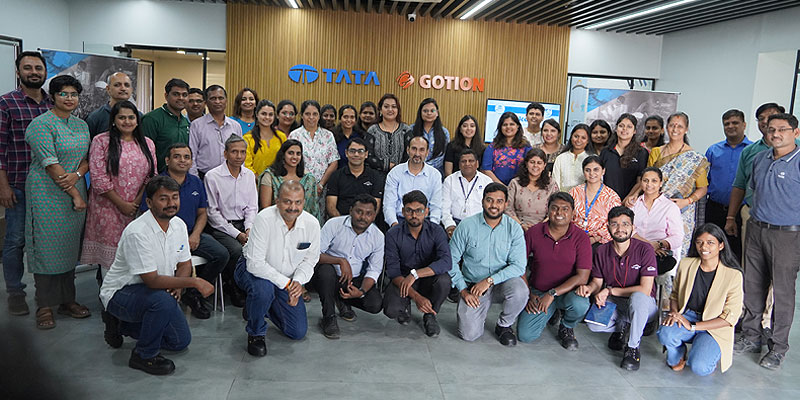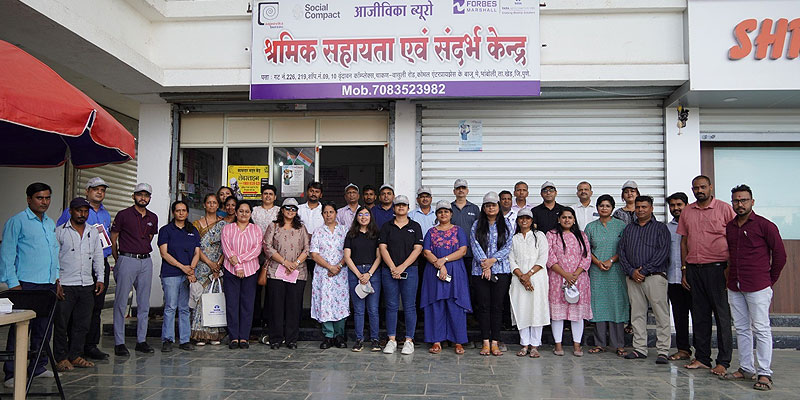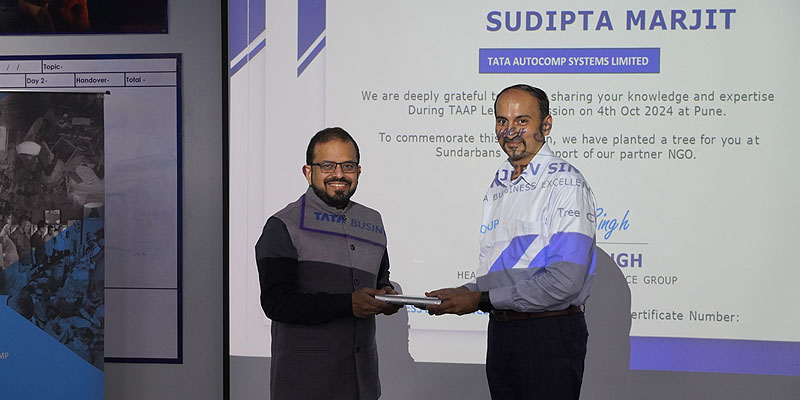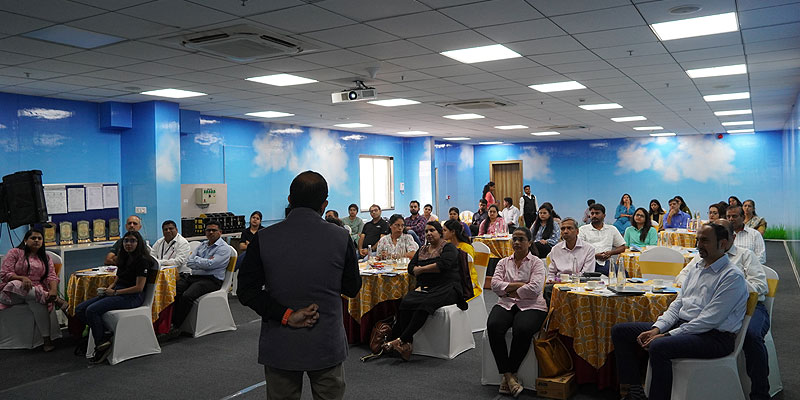Published on October 08, 2024
The Tata group has a long-standing commitment to supporting the communities in which it operates, focusing on initiatives that promote social responsibility through the Tata Affirmative Action Programme (TAAP). Recognising the significance of collaboration and knowledge sharing in enhancing the impact of these initiatives, Tata AutoComp (TACO) hosted a TAAP Learning Mission on October 4, 2024, at the EV Gotion Manufacturing Plant in Chakan. This event brought together 30 senior leaders from multiple Tata companies to discuss best practices in Corporate Social Responsibility (CSR) and highlight the importance of diversity and inclusion in driving social excellence. Through insightful presentations and on-site visits, the mission aimed to strengthen the collective efforts of Tata companies in making a meaningful difference in society.
The objectives of the TAAP Learning Mission focused on showcasing TACO's CSR initiatives in alignment with TAAP, demonstrating a commitment to diversity and inclusion, and facilitating knowledge sharing among Tata group companies.
The event began with an introduction by the TACO’s leadership, outlining the company’s vision and values, particularly highlighting its focus on social responsibility and community engagement. Sudipto Marjit, Group Head - HR, Business Excellence & OSM, TACO, presented an in-depth overview of the CSR and TAAP strategy, with support from the Corporate CSR Team. The presentation detailed how CSR initiatives align with TACO’s business objectives, highlighted flagship programmes, and assessed their measurable impact on communities. Sudipto also discussed future plans to enhance CSR efforts and deepen community engagement.
Several CSR initiatives were featured during the learning mission, including
- The Worker Facilitation Centre, which aims to improve worker welfare through resources and support.
- The Community Learning Centre seeking to enhance educational opportunities for local communities, addressing the challenges faced by students who struggle with regular studies.
- The Girls Scholarship Programme promoting gender equality and empowerment by supporting the education of young girls, reducing dropout rates after the 7th standard.
- The Adult Literacy Programme targeting increased literacy rates among adults, particularly women.
- And the Menstrual Hygiene Management initiative focuses on menstrual health and hygiene, fostering awareness among women and individuals of all age groups.
- A notable highlight was the establishment of Cafe DIL, an initiative providing dignity and skills training for autistic students as they learn the art of being baristas. This café was inaugurated during a High Tea session, underscoring the company's commitment to inclusive education.
- Additionally, Project Revive's ‘Crafted Wings’ supports artisans from the transgender community, helping to preserve traditional crafts and providing sustainable income. Corporate gifts made by these artisans were presented to participants, showcasing their craftsmanship and the project's impact.
The learning mission also emphasised TACO’s diversity and inclusion strategy, discussing the link between diversity and enhanced business performance, the organisation’s commitment to creating an inclusive workplace that values diverse perspectives, and showcasing initiatives aimed at promoting diversity across all levels, underscoring their role in driving business success.
Following the presentations, participants engaged in guided tours of various CSR project sites in Chakan. The immersive experience allowed them to observe the impact of TACO’s initiatives first-hand, as they interacted with community members and beneficiaries. Feedback from participants was overwhelmingly positive, with many acknowledging the tangible differences these programmes are making in the lives of individuals and families.
The TAAP Learning Mission successfully facilitated knowledge sharing among Tata group leaders, reinforcing the commitment to the Tata Affirmative Action Programme. It highlighted ongoing CSR efforts to enhance social impact and identified future opportunities to promote best practices, fostering a culture of responsibility, inclusion, and sustainability.






